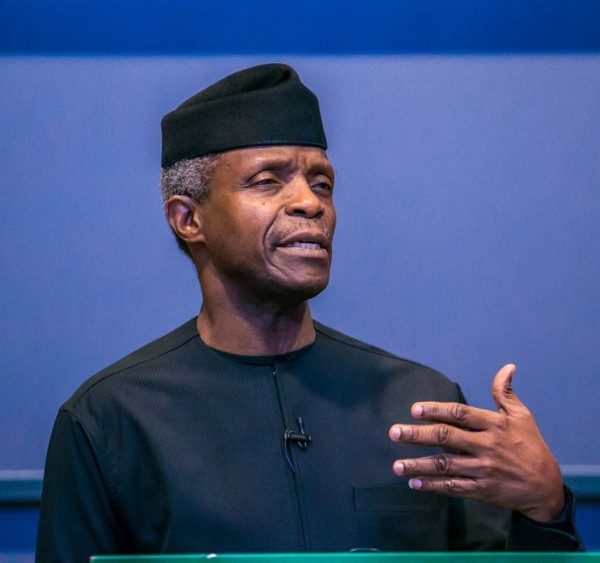The Federal Government, Monday, bemoaned the paucity of funds required to undertake significant investments in the oil and gas industry in Nigeria and the rest of Africa.
This is even as Nigeria’s Minister of State for Petroleum Resources, Mr. Ibe Kachikwu, emerged the new President of African Petroleum Producers Organisation, APPO.
Speaking at the opening ceremony of the Extraordinary Session of the Council of Ministers of APPO in Abuja, Vice President Yemi Osinbajo, disclosed that due to the fact that the oil and gas industry was very capital intensive, individual African countries do not have the resources required to make the necessary investments in the industry.
“This is especially true, because these investments are competing with infrastructure and social services for the limited resources available to us as government,” he said.
Osinbajo, however, called for increased synergy and cooperation among oil-producing countries in Africa as, according to him, this is critical to tackling the funding challenges that have hindered the growth and development of the continent’s petroleum industry.
He argued that in the increasingly inter-dependent world that we live in, greater levels of regional integration would be required, allowing the free-flow of the dividends of research and technology.
Osinbajo said, “By serving as a platform for increased collaboration and cooperation among member countries, APPO would go a long way towards helping overcome these financial challenges.
“Increased synergy would no doubt help mobilize the investment needed to facilitate and to deliver the major infrastructure required by the continent, such as trans-border gas and oil pipeline, joint refineries, gas plants and so on. Nigeria is already leading with our West African Gas Pipeline Project and the Nigeria-Niger collaboration on refining.”
He also called for a review of the model of the APPO Fund for Technical Cooperation, to enable it provide the much-needed funding for the continent’s oil producers and also achieve its other objectives.
“I would also want to talk about the APPO Fund For Technical Cooperation, which I am told is also undergoing recapitalization to enable it better fulfill the role for which it was established.
“The financial model of the fund, for example, may need some re-tweaking. It could be remodelled after similar institutions that had succeeded, like the OPEC Fund, where of course, as you know, non-OPEC members can begin to invest,” he said.
The Vice President further highlighted the need for the APPO and APPO Fund to be thrown open, to enable none APPO member countries and private institutions invest, while also emphasizing that the Fund operate as an autonomous entity, independent, perhaps, of APPO secretariat, in the same way that the OPEC fund operates independently of OPEC itself.
He added, “If institutions similar to APPO and the APPO Fund have succeeded and are continuing to succeed in other parts of the world, then we have no reason, no excuse to fail as a continent.”
Kachikwu becomes APPO president
Also speaking, the newly appointed President of APPO and Nigeria’s Minister of State for Petroleum Resources, Mr. Ibe Kachikwu, noted that driven by the quest for development across the African continent, there were new finds of oil and gas, while massive exploration was currently ongoing.
However, he lamented that finding the necessary funds to finance these ventures was very difficult, as a investors were increasingly finding it hard to invest in crude oil and gas exploration in the Africa.
Kachikwu also called for increased integration and cooperation among oil-producing countries in Africa to mobilise funding for these big ticket oil and gas projects.
He said, “The only way growth would happen in this sector in the whole of Africa is through an inter-dependence approach. All of us must be able to hold hands and find a way of supporting one another, in terms of the research; in terms of the internal investments potentials and capabilities, and also help to drive the process.
“We are therefore, having to merge and juxtapose the rising profile of African oil production with the level of response that is required for purpose of integration, to enable us achieve the objectives that we have.”

